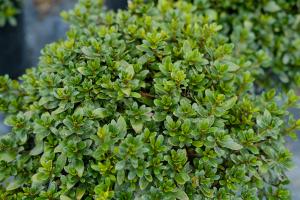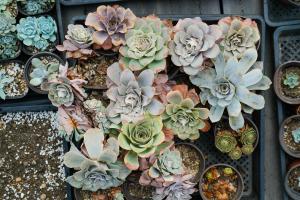Why Do You Put Epsom Salt Around Tomato Plants?
Tomatoes are a popular summer crop, known for their sweet flavor and versatility in the kitchen. However, growing strong and healthy tomato plants can be a challenge for even experienced gardeners. One trick that some gardeners use is to add Epsom salt to the soil around their tomato plants. But why?
What is Epsom Salt?
Epsom salt, also known as magnesium sulfate, is a mineral compound made up of magnesium, sulfur, and oxygen. It is named after the town of Epsom, England, where it was first discovered in the 17th century. Epsom salt is commonly used as a natural remedy for sore muscles and as a laxative, but it also has agricultural uses.
What are the Benefits of Epsom Salt for Tomato Plants?
Adding Epsom salt to the soil around tomato plants can provide several benefits. First and foremost, magnesium is one of the essential nutrients that plants need to grow and produce fruit. Magnesium helps plants produce chlorophyll, which is necessary for photosynthesis – the process that plants use to create energy from sunlight. Without enough magnesium, tomato plants can develop yellow leaves and stunted growth.
Additionally, Epsom salt can help tomato plants absorb other nutrients from the soil, such as nitrogen, phosphorus, and potassium. This can lead to stronger plants and bigger yields. Epsom salt can also help prevent blossom end rot, a common condition in tomatoes where the bottoms of the fruit turn black and mushy due to a calcium deficiency. Magnesium helps plants absorb calcium, so adding Epsom salt to the soil can help prevent this problem.
How to Use Epsom Salt on Tomato Plants
If you want to try using Epsom salt on your tomato plants, it is important to use the right amount and apply it at the right time. Most experts recommend using 1-2 tablespoons of Epsom salt per gallon of water, and then applying that mixture to the soil around the plants every two to three weeks throughout the growing season. You can also mix Epsom salt directly into the soil before planting your tomato seedlings.
It is important to note that Epsom salt should not be used as a replacement for other fertilizers or soil amendments. It is simply one tool that can help improve the health and yield of your tomato plants. Additionally, if your soil already has high levels of magnesium, adding Epsom salt could actually harm your plants rather than help them. It is important to test your soil before adding any supplements to ensure that you are giving your plants what they need.
Conclusion
By providing essential magnesium and improving soil nutrient absorption, Epsom salt can be a useful tool for tomato growers looking to boost the health and yield of their plants. However, it is important to use Epsom salt in moderation and to test your soil before adding any supplements. With the right care and attention, you can enjoy a bountiful tomato harvest all summer long.

 how many times do yo...
how many times do yo... how many planted tre...
how many planted tre... how many pine trees ...
how many pine trees ... how many pecan trees...
how many pecan trees... how many plants comp...
how many plants comp... how many plants can ...
how many plants can ... how many plants and ...
how many plants and ... how many pepper plan...
how many pepper plan...
































